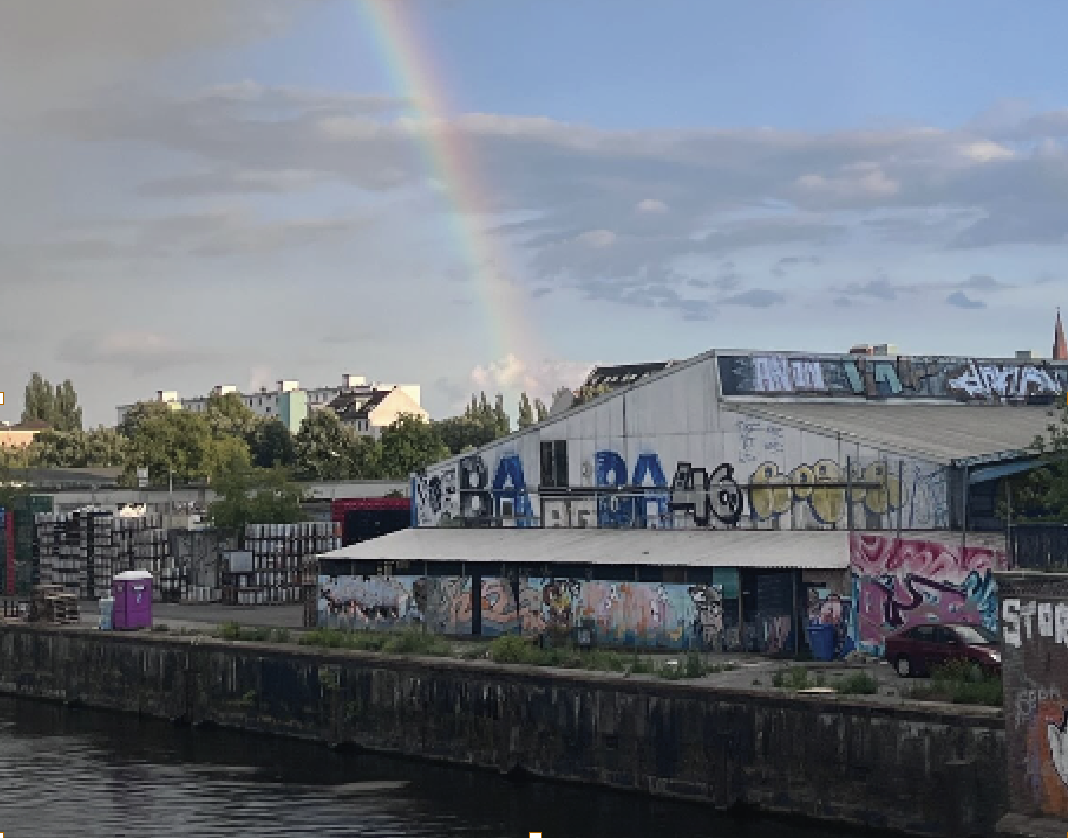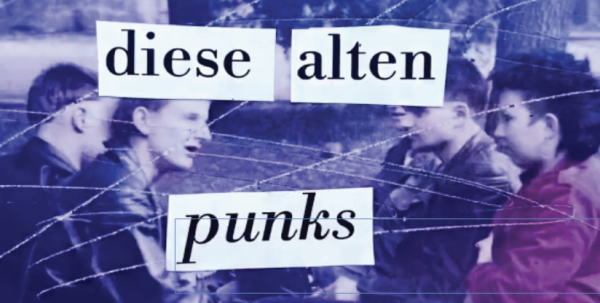
Courtney Lassiter ‘27 snaps a photo of Berlin on her June 2024 trip. Photo from Lassiter’s Instagram.
This is an interview with Courtney Lassiter ‘27 about her experience creating her short film “diese alten punks” (These Old Punks). The film covers the punk scene in Berlin, Germany in the 80s and how the political divisions of the period shaped it. Lassiter will be showing a finalized version of the film at the Verna Miller Case Symposium on May 8.
Q: What was the film about? What topics did you tackle?
Lassiter: I got a Dean Rusk grant to go to Berlin last summer, and my proposal was to film a documentary about the punk movement in the 1970s and 80s in Berlin, which I think was probably one of the most important places for punk because of the political division between East and West Berlin. It’s super interesting with the fact that there were basically two separate movements growing up under similar values in completely different systems, one in Communist East Berlin and one in [capitalistic] West Berlin but also under occupation by the West. So, yeah, I interviewed 11 old punks.
Q: What inspired you to make this film?
Lassiter: I started taking German at Davidson for my language credit, and I got really interested in the idea of taking my knowledge of the German language into my career. I started thinking about the fact that I might want to live in Berlin when I’m older. I read a book called [Burning Down the Haus: Punk Rock, Revolution, and the Fall of the Berlin Wall] by Tim Mohr, which was about the punk movement in Berlin, and it got me so interested. I actually started looking at what documentaries there were covering the subject, and there weren’t many which were about what I thought was really particularly interesting, the divide between East and West.

Q: How did you get in contact with all these old punk guys?
Lassiter: I was cold emailing for a very long time from the beginning of the project, which was in about September of 2023, so almost right when I got to Davidson. I reached out to a couple punk magazines, some archives, a couple museums, asking them to put me in contact with any possible person who might be interested in the subject matter. And slowly, I think about four or five responded (only two or three ended up being in the final film) and the rest were just connections I made when I got to Berlin from those people. So it kind of all spanned out and I was in Berlin only for a month, but right at the end of it, I felt like I was getting so many connections and so many opportunities that if I had stayed a month longer, I probably would have gotten to know everyone. But honestly, I think that it was great that I could keep my film to a smaller [number] of people, because it already has so much personality and so much life just from the people who agreed to participate.
Q: What was the process of making the film? What was it like using film as a medium?
Lassiter: My favorite part of the process was the fact that it was so mobile and so hands-on […] I really find myself drawn more so to forms of art and creativity that are really ingrained with just living and daily life. So in Berlin, I got to live my daily life, which was going to cafes, going to some random house to interview them, and then going home and uploading all that footage onto my computer and looking through it. I really got into that groove, and it was just so enriching. Actually, I have this record [“Flesh for Fantasy” by Billy Idol] on my wall that one of our participants gave me, and funnily enough, he’s one of the biggest record collectors in Europe. I think he had 40,000 [records] […] so I met all sorts of really interesting people. The main thing that I had to do then with my creativity was to edit it and to give a sense of what this time was like […] because I could sit here and tell you about the whole thing for five hours, but like, nobody’s gonna listen to that. So it has to be engaging and interesting and cut down to 20 minutes and that’s really where I got to be creative with it.
Q: What was your favorite part or moment of the process?
Lassiter: Well, the story about the guy giving me the record was really interesting. There were a couple mishaps, like one time I was going to interview a woman and she gave me the address, but no city, and I went to the address […] in a city next to Berlin, Potsdam. By the time I got there—which was an hour away—I realized that there were two addresses, and [her address] was actually only 8 minutes from my house. That one was not super fun. There were a couple [other] really interesting moments. One of the guys I interviewed for my film, Mark Reeder, toured with New Order in the 80s, and he put on the only Joy Division show that ever happened in Berlin. So it was really interesting to get to meet all of these people and just feel so connected to a movement that I wasn’t even alive for.
Q: What was your goal for the film? What do you hope people take away?
Lassiter: So one of my biggest goals for the film was being able to (1) accurately depict the subculture and get more people to know about it, but (2) to get people to understand the political angle of it. There are definitely some political statements that I made throughout the film, because as a filmmaker, when you’re creating, you’re creating from your own lens. So I think that the divide between East and West and the political lens that punks were taking back in the 1980s to the movement is something that younger people these days can be inspired by. It’s also a really great thing to have for my portfolio and to have experience making, because filmmaking, especially editing in [Adobe] Premiere Pro, was such a technical skill that I really needed to learn, especially if I want to have a career in this sort of business. So this entire film kind of reaffirmed my love for Germany and German culture, and made me really consider it as a place I might want to spend my life post grad.
Q: What was it like showing a film you had made to your peers?
Lassiter: I had my test screening last week on Tuesday, and that was one of the most nerve-wracking experiences of my life. Setting it up, especially with filmmaking, [is] kind of different from the rest of my art in that even the most labor-intensive, traditional art piece I work on will take somewhere around 20 hours at the most. Meanwhile, this film had literally taken more than a year in the making and so much emotional energy so leading up to showing the film I was absolutely horrified, but the moment that I pressed play, I just really felt so much love from the room, and the understanding that although I’ve seen this film hundreds of times, my peers haven’t, and they’re looking at it with this fresh lens.
Q: What was it like being in Berlin doing research? Did being there impact your research and perspective while making the piece?
Lassiter: There’s an artist [..] who made this statement that the city is her studio, and I really resonate with that. Being in a city that was full of creative energy and had a bustling vibe definitely contributed to my creativity and my will to go out there and capture this. Even though I went in not really knowing many people, I came out with so many friends, not only of my age, but people like sixty-plus years old, who are just these old punks […] it was one of the most beautiful experiences of my life to be able to get to know a city, because with Berlin being as big as it is, it almost feels alive in and of itself.
Q: If other students wanted to do something similar, what advice would you have for them?
Lassiter: [My] major advice I would give is to take advantage of Davidson’s funding, especially while you’re here as an undergrad. There are so many other schools that don’t give undergrads access to this level of funding, and especially funding for the arts. I would also advise people to push the boundaries a little bit. You may feel like something is unrealistic or out of your comfort zone, but at the end of the day, you would never really know until you did it. I could have gone to Berlin and come back [realizing] that maybe this film was too big for me to tackle, but instead I went […] not knowing how to use a camera, not knowing how I was going to edit it, not knowing where this film would end up, and I came out, almost a year later, with a nearly completed film which I’m getting ready to submit to film festivals and [the film] is screening at my [college], and I think that’s awesome.
Josie Swain ‘27 is an English major from Atlanta, GA and can be reached for comment at [email protected].